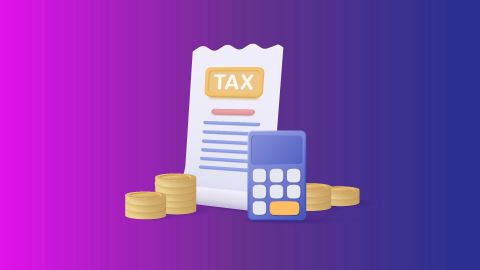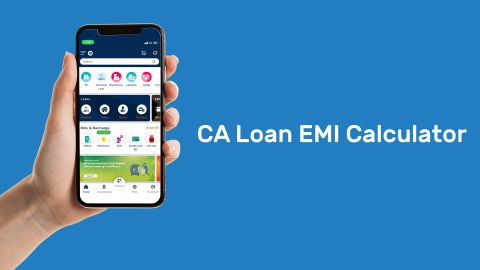Here are some of the salient features of management accounting:
- Supports decision-making: Provides management with information to make smart choices, like whether to continue a product or change a sales strategy.
- Future-focused: Helps plan for the future through budgeting, forecasting, and strategic planning.
- Uses special techniques: Applies tools such as cost management, variance analysis, budget control, and ratios to understand data.
- Gives financial and non-financial information: Shares numbers like costs and profits, as well as qualitative info like staff performance.
- Helps planning and control: Assists in setting goals, making plans, and checking progress to achieve them.
- Flexible and optional: Not legally required, so it can be customised to the organisation’s needs.
- Analyses causes: Looks beyond numbers to understand why results happened.
- Communicates effectively: Shares plans and strategies across the organisation.
Functions of management accounting
The three primary functions of managerial accounting are:
Planning: It provides both financial and non-financial insights that help management set objectives, design strategies, and prepare budgets. This function focuses on forecasting performance, setting targets, and allocating resources to achieve organisational goals.
Controlling: It monitors actual performance against plans and budgets, highlighting variances and their causes. By analysing these differences, management can take corrective actions to ensure the business remains aligned with its goals.
Decision-making: It equips management with relevant data and analysis to make informed choices. This includes trend analysis, forecasting, profitability assessments, cost evaluations, and support for strategic decisions such as pricing, investments, and production planning.
Importance of management accounting
The core purpose of managerial accounting is to support management in carrying out its key functions of planning, organising, directing, and controlling. It helps in the following ways:
For decision-making and planning:
- Provides data-driven insights: Shares timely financial information—like costs, revenue, and budgets—to guide choices on pricing, investments, and expansion.
- Supports forecasting: Uses past data to predict trends for better planning and realistic goals.
- Aids strategic planning: Turns strategies into measurable targets to keep the organisation on track.
For control and performance:
- Enables cost control: Analyses cost factors to reduce expenses and improve efficiency.
- Facilitates budgeting: Shows available resources and limits for effective budget management.
- Evaluates performance: Measures results of departments or individuals using benchmarks like profit margins.
For operations and risk management:
- Improves efficiency: Examines costs of activities to streamline operations and cut waste.
- Manages risk: Spots financial risks and helps plan ways to reduce them.
- Includes qualitative info: Considers non-financial factors for well-rounded decisions.
Scope of management accounting
Managerial accounting focuses on maximising profit and minimising losses by presenting data in a way that helps managers anticipate financial issues and make informed decisions. Its scope covers a wide range of business functions, including the following:
- Financial Planning & Forecasting: Creating budgets, forecasts, and financial goals to guide the future.
- Cost Accounting & Control: Managing and analysing costs to improve efficiency and profits using methods like standard or marginal costing.
- Performance Measurement: Tracking financial and non-financial results, including variances.
- Internal Reporting & Analysis: Preparing detailed internal reports and interpreting data for decisions.
- Strategic Decision-Making: Providing insights for pricing, product choices, and long-term plans.
- Risk Management: Spotting risks and planning ways to reduce them.
- Budgetary Control: Setting budgets and comparing them with actual outcomes.
- Inventory Management: Managing stock to balance availability and costs.
- Project Accounting: Monitoring project expenses and revenues.
- Internal Controls & Auditing: Putting controls in place to protect assets and ensure accuracy.
Role of management accounting
Management accounting supports managers in making informed business decisions. Often referred to as cost accounting, it involves identifying, analysing, interpreting, and sharing financial information that helps in achieving company goals. The data covers all areas of accounting, especially the costs related to products and services purchased by the business.
Management accountants prepare budgets to outline operational plans and use performance reports to highlight differences between actual results and budgeted figures.
Benefits of undertaking management accounting
Below are the main benefits of managerial accounting.
Get in-depth analysis to make wise business decisions
Identify issues with your business model early on
Forecast profit margins for particular goods and services
Prepare data for financial accounting reports
Conduct a break-even analysis
Determine stock valuation
Strategize for the future
Management accounting techniques
Managerial accounting makes use of several techniques to help businesses plan, control, and make informed decisions. Some of the key ones include:
Margin analysis: Focuses on evaluating the additional benefits of production changes. It includes breakeven analysis to determine the best sales mix for products.
Constraint analysis: Reviews production processes to identify bottlenecks, inefficiencies, and their effect on revenue and profitability.
Capital budgeting: Helps in making decisions about large investments. Techniques like Net Present Value (NPV) and Internal Rate of Return (IRR) are used to evaluate capital expenditure projects.
Inventory valuation and product costing: Involves analysing the costs of products and inventory. It includes allocating overheads, calculating the cost of goods sold (COGS), and using activity-based costing to assign costs more accurately.
Trend analysis and forecasting: Examines cost and performance patterns to forecast future outcomes. It also highlights unusual variances and explores their causes.
Differences between management accounting and financial accounting
Feature
|
Financial Accounting
|
Management Accounting
|
Primary Audience
|
External stakeholders (investors, creditors, regulators)
|
Internal stakeholders (managers, executives)
|
Purpose
|
Present a standardized view of financial health and performance
|
Support internal decision-making, planning, and control
|
Rules and Standards
|
Strict adherence to GAAP or IFRS for consistency and comparability
|
No mandatory external reporting standards; flexible and customizable
|
Type of Information
|
Primarily financial, historical data
|
Both financial and non-financial (qualitative) data, including forecasts and budgets
|
Time Orientation
|
Historically focused (past transactions and performance)
|
Future-oriented (forecasting, budgeting, strategic planning)
|
Level of Detail
|
Aggregated and summarized for a broad overview
|
Detailed and granular, specific to departments, products, or projects
|
Types of Reports
|
Standardized financial statements (balance sheet, income statement, cash flow statement)
|
Budgets, cost analyses, variance analyses, performance evaluations
|
Legal Requirement
|
Often mandatory for public companies
|
Not legally required, but highly useful for internal management
|
Differences between management accounting and cost accounting
Feature
|
Management Accounting
|
Cost Accounting
|
Purpose
|
Provides financial and operational insights to support planning, control, and strategic decisions.
|
Tracks, measures, and manages business costs linked to production or services.
|
Scope
|
Broad, covering cost, financial, and operational data for overall business management.
|
Narrow, focused mainly on cost determination, analysis, and control.
|
Focus Area
|
Budgeting, forecasting, strategy formulation, performance evaluation, and business growth.
|
Cost monitoring, cost reduction, and efficiency within operations or service delivery.
|
Time Orientation
|
Future-focused, using past data and projections for planning, forecasting, and decision-making.
|
Past-focused, using historical data to analyse and evaluate performance.
|
Data Type
|
Includes quantitative (financial results) and qualitative (trends, feedback, market insights) information.
|
Relies on quantitative cost figures such as cost per unit, overheads, and efficiency ratios.
|
Users
|
Used by top management, executives, and managers across departments for strategic choices.
|
Used mainly by operational staff like production managers and cost accountants.
|
Reporting
|
Flexible and customised reports designed to meet management needs and aid in decision-making.
|
Structured and detailed reports such as variance analyses and cost sheets.
|
Dependency
|
Depends on inputs from both cost accounting and financial accounting systems.
|
Can operate independently, especially for specific cost analysis purposes.
|
Legal Requirement
|
Not mandatory by law.
|
Sometimes legally required in regulated sectors or under government contracts.
|
Conclusion
Management accounting provides managers with financial and non-financial insights for effective planning, control, and decision-making. It uses techniques like margin analysis, capital budgeting, and activity-based costing to optimise performance. Especially useful for professionals seeking CA loans or professional loans, it helps forecast profitability, monitor resources, and make strategic decisions, supporting both short- and long-term business goals.









